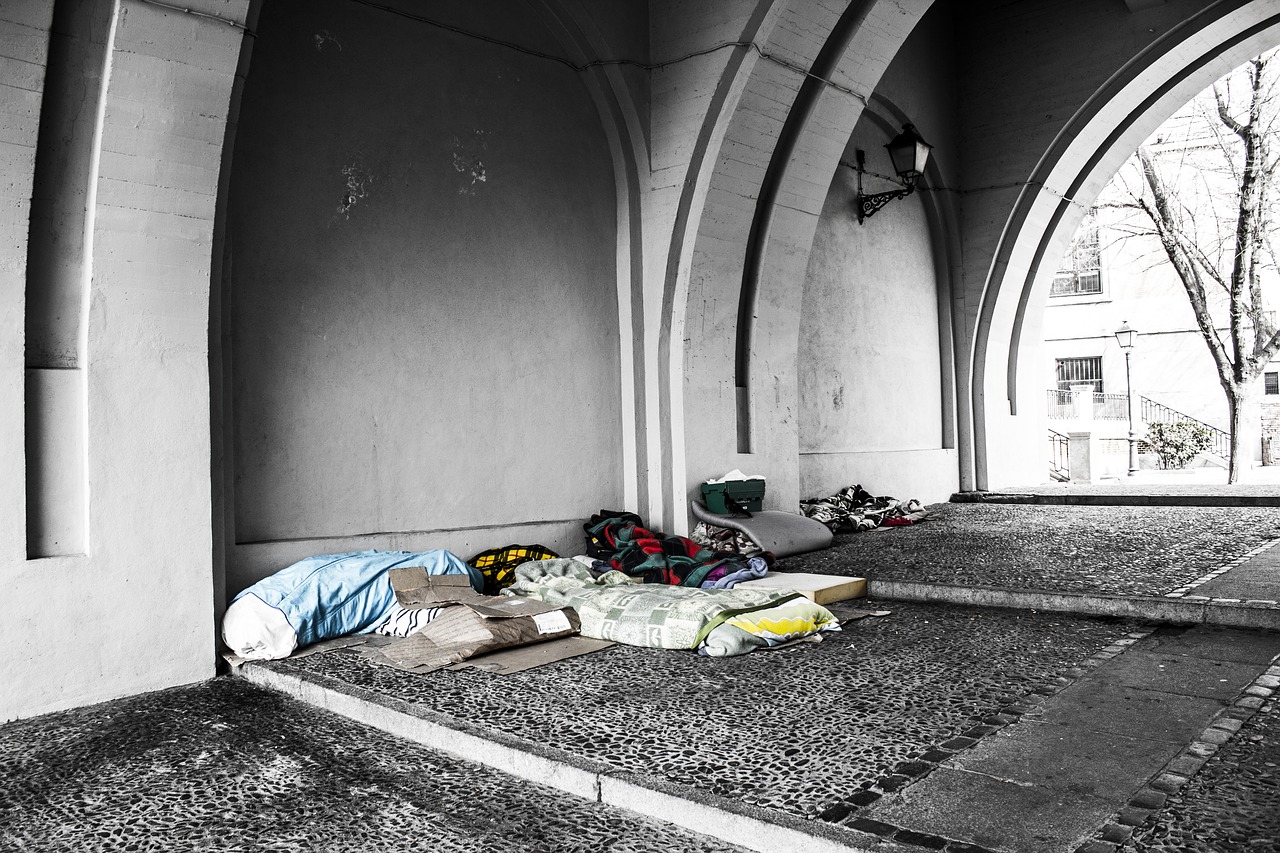Homelessness figures highlight ‘urgent need’ for accurate measure of rough sleepers

The Salvation Army is calling for accurate measurement and reporting of rough sleeping to be introduced urgently in Scotland following the publication of the latest homelessness statistics today by the Scottish Government.
The figures released today show that from 1 Apr to 30 Sep 2023, there were 1,408 applications that reported a household member experiencing rough sleeping in the three months before the application was made, and 888 the night before. This compares to 1,184 households and 733 households over the same period in 2022.
Malcolm Page, assistant territorial director of homeless services with The Salvation Army, said: “From today’s statistics we see indications that rough sleeping is increasing in Scotland, up from very low numbers during and immediately after the Pandemic when legislation protected people. Rough sleeping numbers in Scotland are assessed through asking questions when people make a homelessness application. It is good that this information is collected but because not everyone sleeping rough will register as homeless it needs to be supplemented with real-time information.”
In London, organisations supporting people who are rough sleeping collect and submit real-time data, building an accurate picture across the city through a process called CHAIN (Combined Homelessness and Information Network). The Salvation Army is calling for the establishment of a CHAIN-type approach in areas with high levels of street homelessness in Scotland to enable more effective and targeted allocation of resources and more help for people who are sleeping rough.
Malcolm Page added: “We know from experience in London that resources can be allocated effectively when we have access to real-time information on rough sleeping. That is why we are calling for a CHAIN-type system here Scotland where there are high levels of rough sleeping, capturing the number, nature and distribution of the problem. This would not only assist in targeting resources but would support progress towards eradicating it.
“Scotland has some of the strongest measures in place to protect people who are homeless. In addressing this information gap, we have an opportunity to further strengthen protections for people with the sharpest experiences.”
The statistics also highlight an increase in applications for homelessness assistance and households assessed as homeless or threatened with homelessness.
Over the period covering 1 April to 30 September 2023, there were 20,144 applications for homelessness assistance. This is an increase of 3% (658) compared with the same six-month period in 2022. There were also 16,420 households assessed as homeless or threatened with homelessness; an increase of 4% (627) on the same six-month period in 2022.
The number of open cases increased to 30,724 on 30 September 2023. This is 10% higher than the 28,019 on 30 September 2022, and the highest since data collection began in 2002.
The number of households (15,625) and children (9,860) in temporary accommodation both increased by 8% compared with 14,452 households 9,125 children on 30 September 2022.
There were 2,185 households homeless from a private rented tenancy, accounting for 13% of the total. This has decreased from 3,010 or 19% of the total in 2022. The Scottish Government said this is likely due to cost of living legislation introduced in October 2022 to protect renters. Prior to this, the numbers and proportions had been increasing since the lifting of emergency COVID-19 legislation in May 2021.
There were 1,575 instances of households not being offered temporary accommodation. This is a substantial increase from 345 in 2022. The vast majority of these (1,355) were in Glasgow.
The proportion of households who secured settled accommodation having been assessed as unintentionally homeless was 82%, compared to 84% in 2022.
Housing minister Paul McLennan said: “These figures are sobering and demonstrate the challenge we face in tackling homelessness, which has been made worse by UK Government’s Local Housing Allowance Freeze, cuts to the Scottish Government’s budget and the bedroom tax.
“Despite this, Scotland continues to have the strongest rights anywhere in the UK for anyone who becomes homeless, but we are determined to ensure no one need become homeless in the first place and ensure people can stay in their homes.
“I regularly engage with Scotland’s local authorities and work with them find solutions to the housing pressures they are facing. The Scottish Government is doing all it can by making record funding available to councils of more than £14 billion in 2024-25 – a real-terms increase of 4.3% compared with the previous year. This includes £30.5m to local authorities to support their work to prevent homelessness, plus £90.5m to spend on discretionary housing payments. We are also investing £100m in the multi-year ending homelessness together fund.
“The figures show the introduction of emergency legislation to protect tenants during the cost of living crisis has likely reduced the number of private renters from becoming homeless. When the emergency legislation comes to an end from 31 March we have outlined proposals to continue to give tenants stronger rights than anywhere else in the UK.
“As part of our £752m Affordable Housing Supply Programme we are investing at least £60m in 2023-24 to enable local authorities and registered social landlords to identify properties to acquire for use as high quality, affordable, permanent homes. We are working closely with them to maximise delivery by the end of this financial year.”









